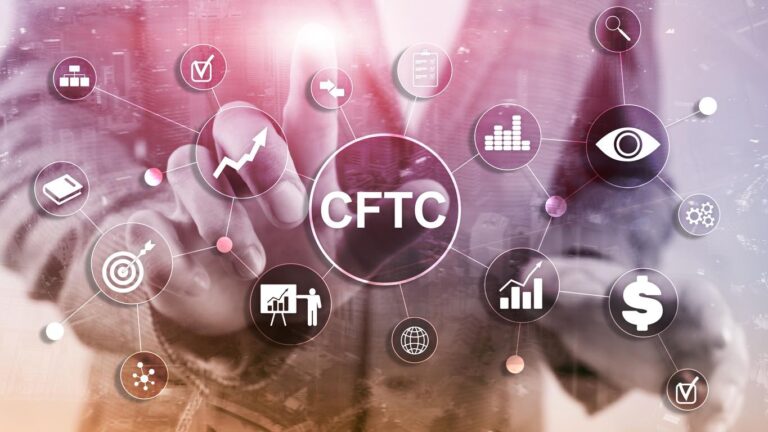How Whistleblower Disclosures of Swaps Manipulation or Swaps Reporting Violations Can Qualify for CFTC Whistleblower Awards
Under the CFTC Whistleblower Program, whistleblowers are eligible for monetary awards when they voluntarily provide the CFTC with original information about violations of the Commodity Exchange Act (“CEA”) that lead to a successful enforcement action resulting in monetary sanctions exceeding $1,000,000.
CFTC-regulated swaps, including Foreign Exchange (“FX”) Forwards and FX Swaps, pose significant systemic risks. Indeed, “the continued pursuit of various opportunistic strategies in the credit derivatives markets, including but not limited to those that have been referred to as ‘manufactured credit events,’ may adversely affect the integrity, confidence and reputation of the credit derivatives markets, as well as markets more generally. These opportunistic strategies raise various issues under securities, derivatives, conduct and antifraud laws, as well as public policy concerns.” See Joint Statement on Opportunistic Strategies in the Credit Derivatives Market (June 24, 2019).
Examples of violations of swaps-related CFTC regulations that can qualify for a CFTC whistleblower award include:
- manipulating or attempting to manipulate the price of any swap, or of any commodity in interstate commerce, such as “hitting spreads down,” “hit[ting] the screen to avoid a los[s],” and “pushing [basis swaps] down,” examples of manipulation in a $45 million settled action with HSBC;
- trading on the basis of material non-public information (“MNPI”) in breach of a pre-existing duty or on MNPI obtained through fraud or deception;
- failing to timely and accurately report (1) real-time, publicly reportable swap transactions; (2) all required swap creation data; and (3) required swap continuation data (per 17 C.F.R. pts. 43 and 45);
- violating the “fair dealing rule,” which requires swap dealers to follow policies and procedures reasonably designed to ensure that its disclosures are fair and complete, and allow the counterparty to protect itself and make an informed decision, such as failing to calculate agreed-upon weighted average price and instead picking a rate swap dealer thought counterparty would accept or failing to disclose that traders had access to clients’ confidential swaps positions;
- “smoothing” mark disclosures to incorporate amounts for profit, credit reserve, hedging, funding, liquidity, or any other costs or adjustments;
- failing to accurately provide mark disclosures to swap counterparties;
- underreporting or overreporting swap transactions;
- spoofing, such as providing bids or offers to a voice broker at a swap execution facility that the trader intends to cancel before execution;
- failing to conduct controls testing, internal and external penetration testing, or enterprise technology risk assessments (an analysis of threats and vulnerabilities in the context of mitigating controls);
- violating Swap Dealer Business Conduct Standards that require swap dealers to: (1) disclose material information in a manner reasonably designed to allow a counterparty to assess the material incentives and conflicts of interest that the swap dealer may have in connection with a particular swap; (2) communicate with any counterparty in a fair and balanced manner based on principles of fair dealing and good faith; and (3) diligently supervise its business as a swap dealer; or
- failing to “establish and maintain a system to supervise, and shall diligently supervise, all activities relating to its business performed by its partners, members, officers, employees, and agents (and persons occupying a similar status or performing a similar function),” as required by 17 C.F.R. § 23.602(a).
CFTC Enforcement Actions for Swaps Manipulation and Reporting Failures
As Commissioner Goldsmith Romero pointed out in a statement concerning a significant enforcement action for violations of swaps reporting and supervision rules, “[s]wap data reporting is fundamental to post-crisis financial regulation as one of the key tools to help regulators identify risk that could become systemic, and to conduct market surveillance. Reporting rules bring transparency to a previously opaque market. Without this transparency, regulators are blind to the same risks that contributed to the financial crisis.” In recent years, the CFTC has taken several significant enforcement actions against swaps manipulation and other swaps-related violations:
- In September 2023, Goldman Sachs, J.P. Morgan, and Bank of America agreed to pay more than $50 million for swap reporting failures, including failure to comply with swap data reporting rules and swaps reporting obligations.
- In May 2022, the CFTC ordered Glencore to pay $1.186 billion for manipulation or attempted manipulation of four U.S.-based S&P Global Platts physical oil benchmarks and related futures and swaps.
- In May 2023, the CFTC ordered HSBC Bank to pay a $45 million penalty for manipulative and deceptive trading in connection with swaps related to bond issuances, spoofing, and supervision and mobile device recordkeeping failures. According to the order, HSBC traders structured their trading intentionally to move prices for the relevant swaps to increase the profitability of issuer swaps for HSBC to the detriment of HSBC’s counterparties.
- In April 2023, registered swap dealer Mizuho Capital Markets LLC greed to pay more than $6.8 million to settle charges of trade practice violations of the Swap Dealer Business Conduct Standards.
- In March 2022, ED&F Man Capital Markets, Ltd., a London-based provisionally registered swap dealer, agreed to pay $3.25 million for failing to comply with certain swap dealer requirements to report accurate swaps data to a swaps data repository (“SDR”), failing to disclose a conflict of interest to swaps counterparties, failing to disclose mid-market marks to counterparties, and for related supervision failures.
- In July 2022, BNP Paribas paid a $6 million civil monetary penalty to settle charges that it violated CFTC regulations relating to swap reporting and daily mark disclosures. The order found that BNPP entered into more than 3 million swap transactions that were incorrectly reported under the CFTC’s rules and failed to correctly report thousands of bunched trades
Proving Swaps Manipulation or Fraud
To establish fraud or manipulation in violation of Regulation 180.1(a)(1)–(3), the CFTC must prove that the party:
- attempted to engage or engaged in prohibited fraudulent or manipulative conduct (i.e., employed a manipulative device, scheme, or artifice to defraud; made a material misrepresentation, misleading statement or deceptive omission; or engaged in a business practice that would operate as a fraud);
- with scienter; and
- in connection with any swap, or contract of sale of any commodity in interstate commerce, or contract for future delivery on or subject to the rules of any registered entity.
CFTC v. McDonnell, 332 F. Supp. 3d 641, 717 (E.D.N.Y. 2018). Proving manipulative conduct does not require a showing of an intent to affect prices or an actual effect on prices. In re McVean Trading, CFTC No. 17–15, 2017 WL 2729956, at *10 (June 21, 2017); In re Grady, CFTC No. 18–41, 2018 WL 4697026, at *5 (Sept. 26, 2018). Nor does it require “a showing of reliance or harm to market participants in a government action brought under CEA section 6(c)(1) and final Rule 180.1.” McVean Trading, 2017 WL 2729956, at *10.
CFTC Whistleblower Rewards and Bounties

Whistleblowers that voluntarily provide the CFTC with original information about violations of the CEA that leads the CFTC to bring a successful enforcement action resulting in the imposition of monetary sanctions exceeding $1,000,000 can qualify for a CFTC whistleblower award from CFTC collected monetary sanctions and from related actions brought by other governmental entities.
CFTC Whistleblower Protection for Swaps Reporting or Swaps Manipulation Whistleblowers
The CFTC Whistleblower Program also protects the confidentiality of swaps whistleblowers and does not disclose information that might directly or indirectly reveal a whistleblower’s identity. Whistleblowers can submit tips anonymously to the CFTC if represented by counsel. Furthermore, the Dodd-Frank Act protects whistleblowers from retaliation by their employers for reporting violations of the CEA to the CFTC.
Experienced and Effective CFTC Whistleblower Lawyers

Since 2014, the CFTC has issued more than $400 million in awards to whistleblowers. The largest CFTC whistleblower awards to date are $200 million, $45 million, $30 million, and $10 million.
Whistleblower disclosures have enabled the CFTC to bring successful enforcement actions against wrongdoers with orders for more than $3 billion in monetary relief.
Call our CFTC whistleblower lawyers today at 202-930-5901 or contact us here to find out if you are eligible for a CFTC whistleblower award. A delay in reporting commodities fraud can potentially disqualify a whistleblower from recovering an award or can lower a whistleblower award, so call us today for a free consultation. We represent CFTC whistleblowers concerning a wide variety of market manipulation schemes.














